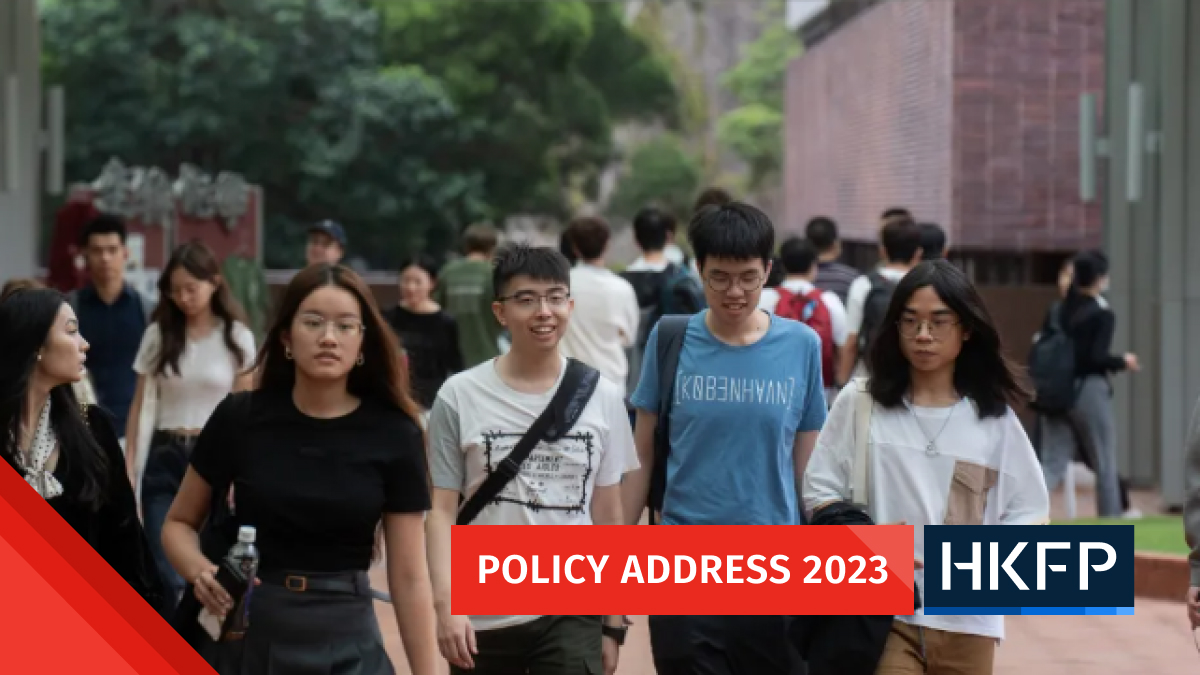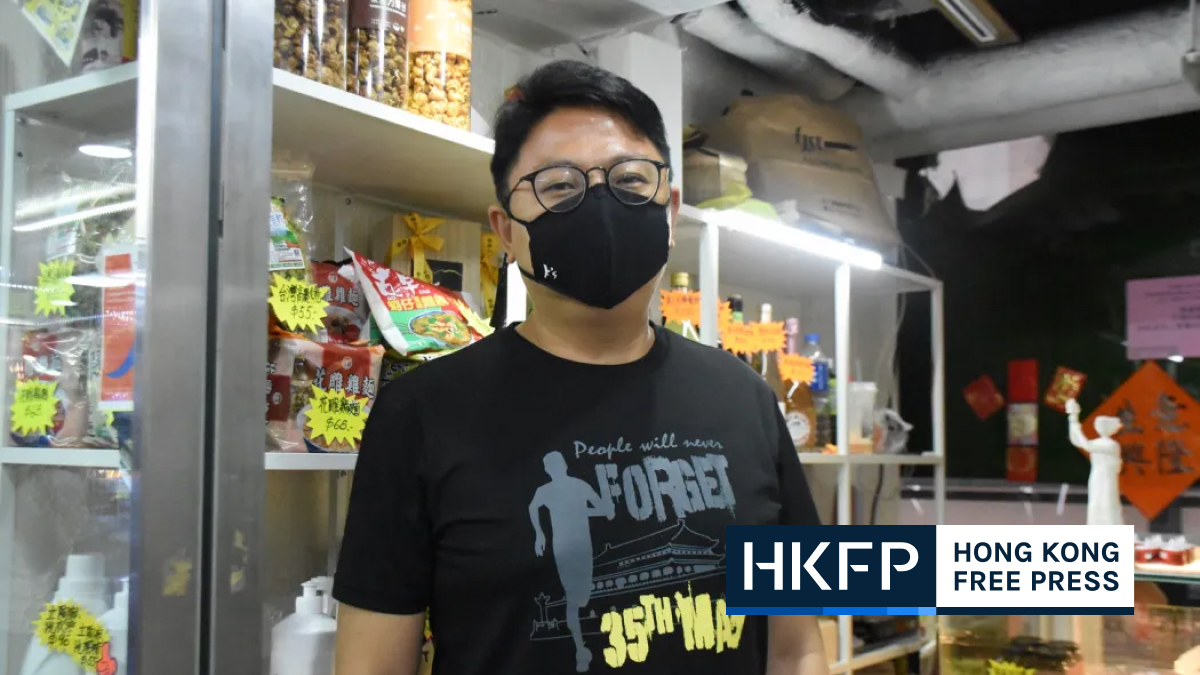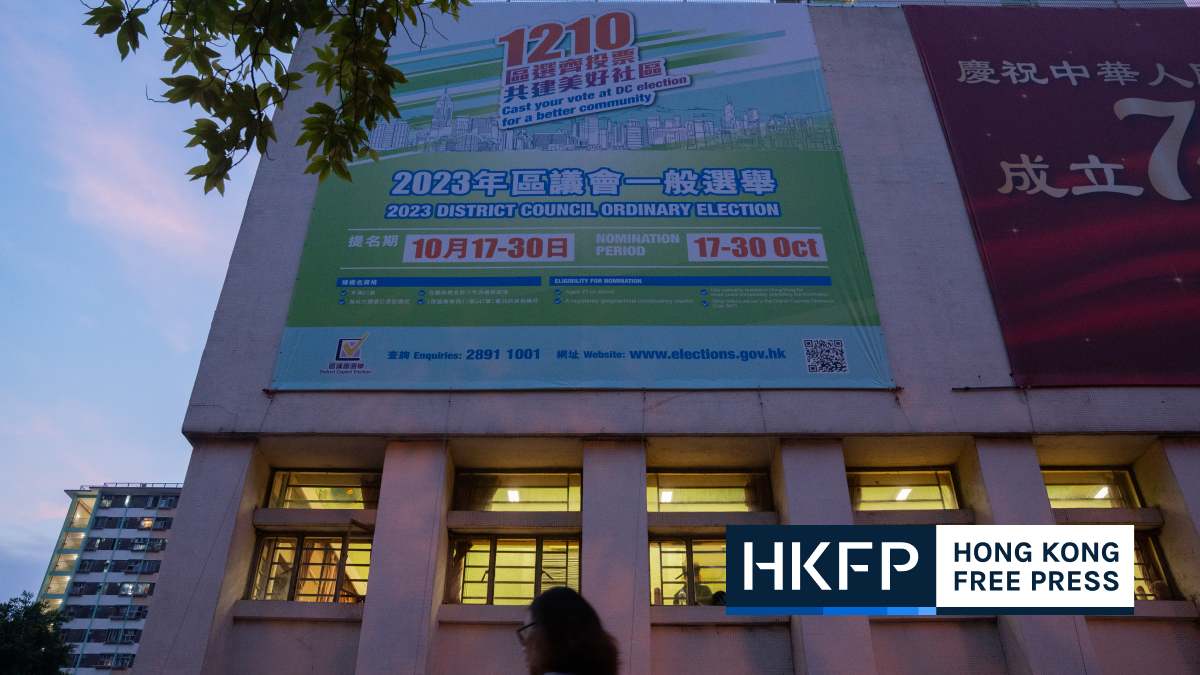In the heart of Cheung Chau, a cultural park bearing the name of Cheung Chau Cinema has opened to the public. But the movie theatre itself – a Grade III historic building dating back to 1931 and one of Hong Kong’s two remaining pre-war cinemas – remains fenced off.
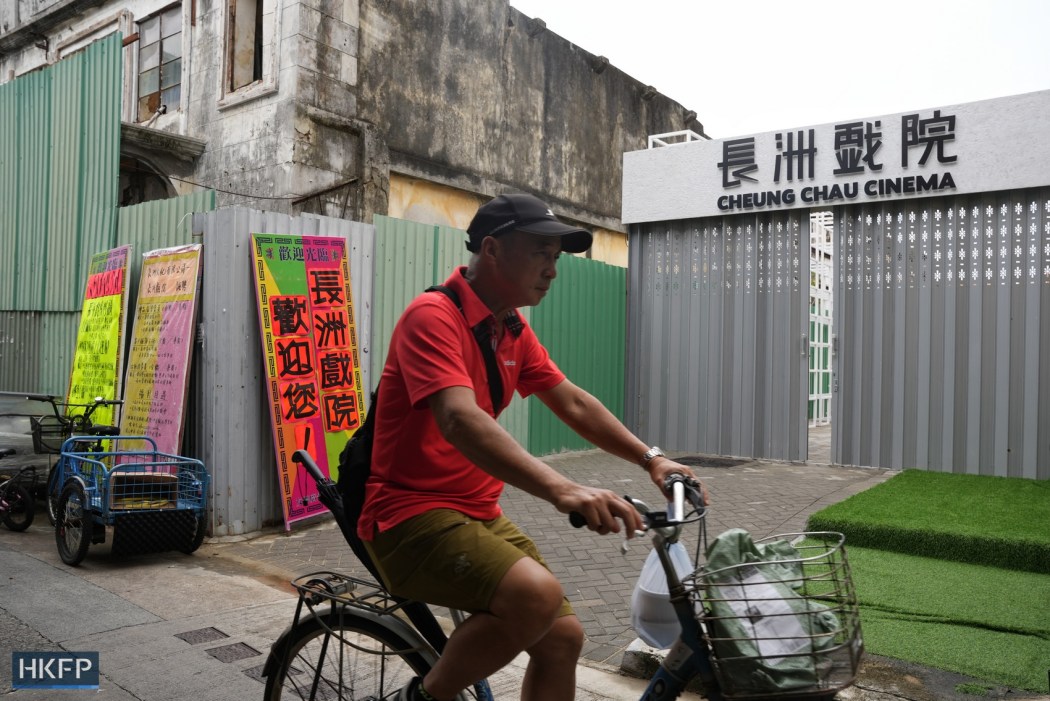
Since its closure in 1997, the 555-seat cinema has been largely abandoned and left to decay, but will be transformed into a restaurant while retaining its original structure, according to the developer.
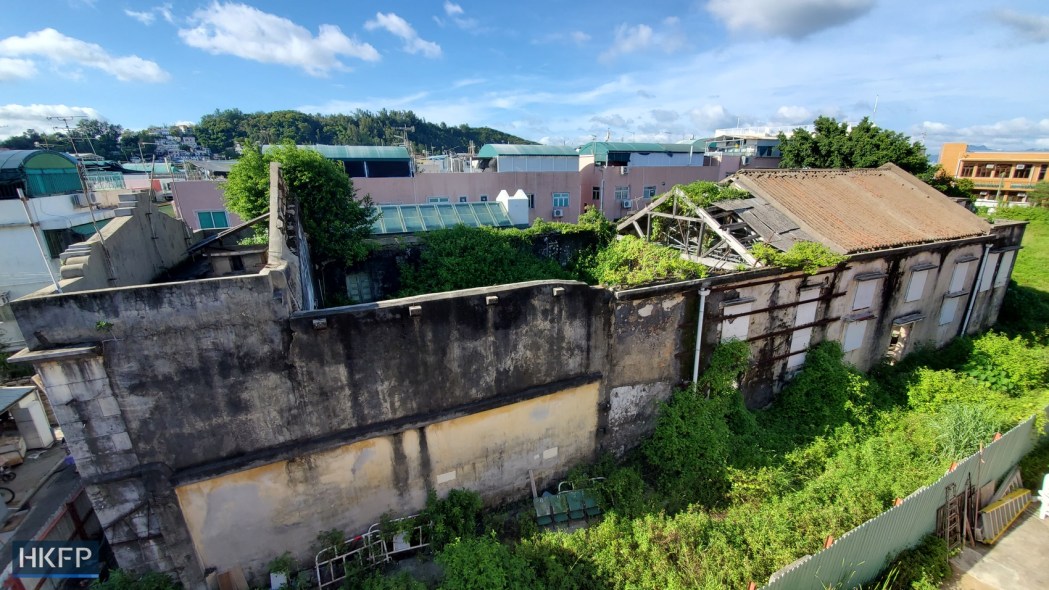
Passers-by peeped curiously into the recently opened park when an HKFP reporter visited the dumbbell-shaped island southwest of central Hong Kong in mid-September, but were hesitant to enter. Some said they had not been consulted about the privately-run restoration project while others welcomed the plan, hoping it would bring back some life – and tourists – to the venue that existed only in their childhood memories.
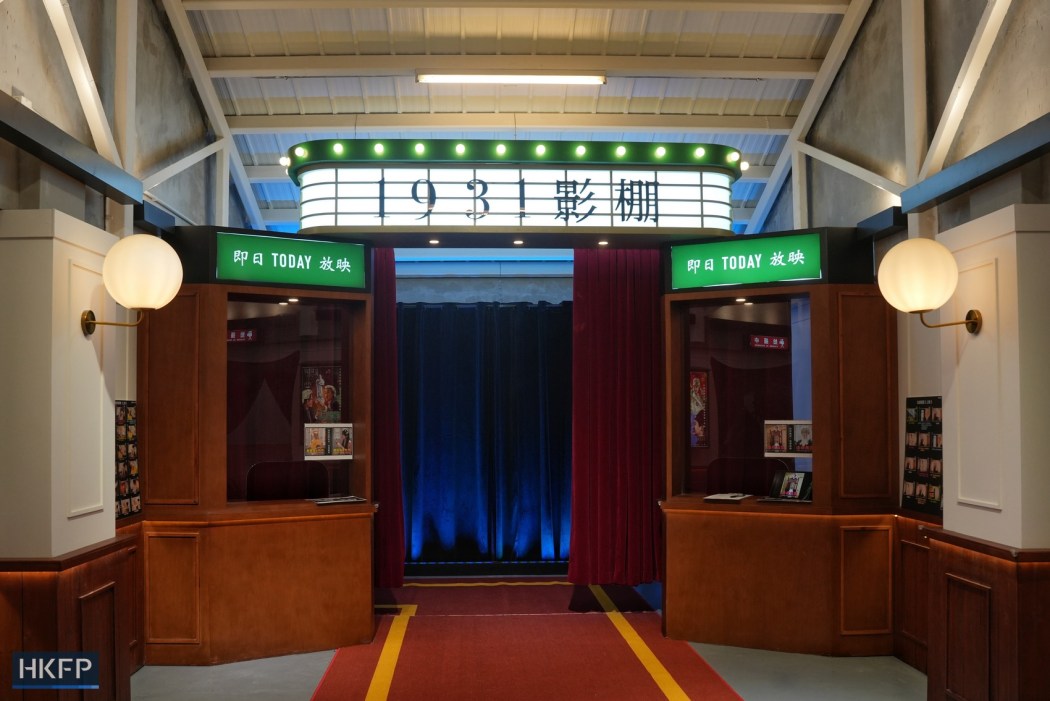
“[The Cheung Chau Cinema] illustrates why it’s important to focus on conservation but not preservation,” conservationist Fredo Cheung told HKFP in Cantonese. “Its abandonment was due to its failure to meet the needs of the community. By introducing a new purpose, it can serve the community again… while being retained as much as possible.”
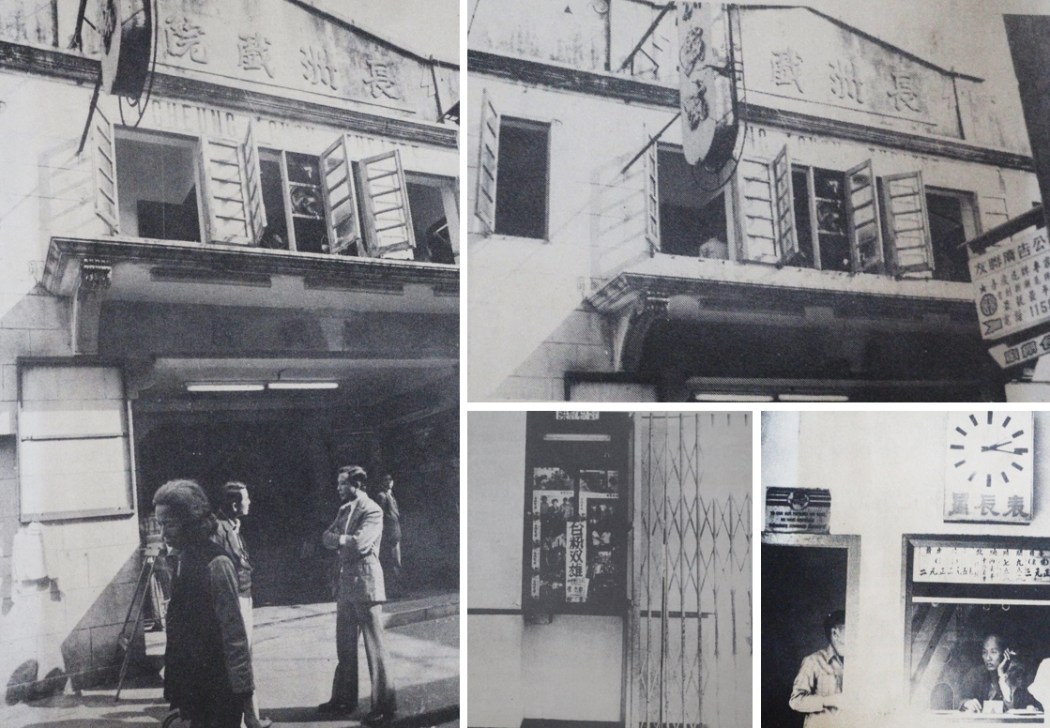
HKFP talked to Cheung Chau residents and experts to understand the challenges facing such cultural heritage projects and their connection to the collective memory of the community.
26 years of decay
“The last film I watched [at the Cheung Chau Cinema] was Stephen Chow’s Hail the Judge,” Kong, an island resident for over 40 years, told HKFP in Cantonese. Hail the Judge was a 1994 comedy starring Stephen Chow and directed by Wong Jing.
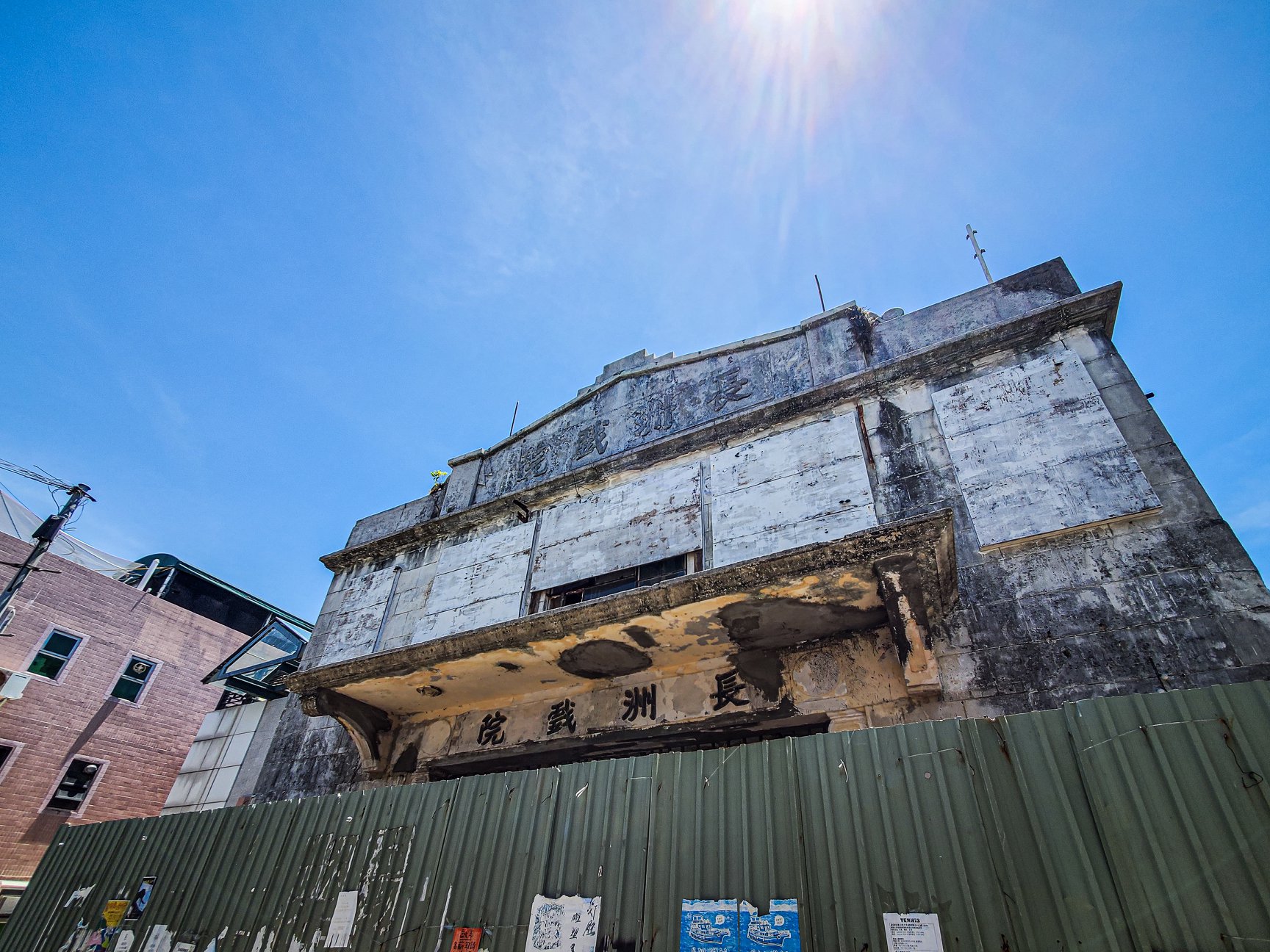
Throughout its six decades in operation, the Cheung Chau Cinema was one of the island’s few entertainment venues. “There were only two cinemas on Cheung Chau back then, and the other one closed even earlier… [so] many people liked to watch films here,” Cheung, an indigenous resident, said in Cantonese.

According to Hong Kong Memories, a digital archive that documents the city’s history and culture, Cheung Chau Cinema’s only rival, the Golden Dragon Theatre, brought down the curtain in the 1980s, and the site was used for a residential complex.
“I loved to go there as a kid… [the Cheung Chau Cinema] would screen Wuxia films starring Walter Tso and Yam Kim-fai, and I would trail behind the adults to sneak inside, standing in the aisle to watch,” said local resident Cheung, now aged 76.
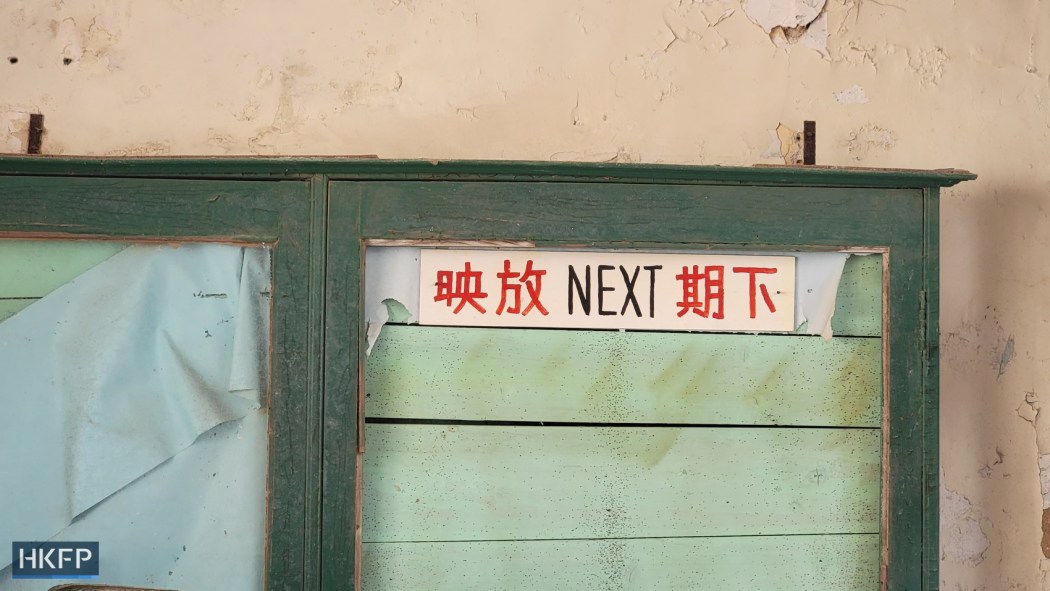
Tso and Yam were both household names and Chinese opera film icons in the mid-20th century.
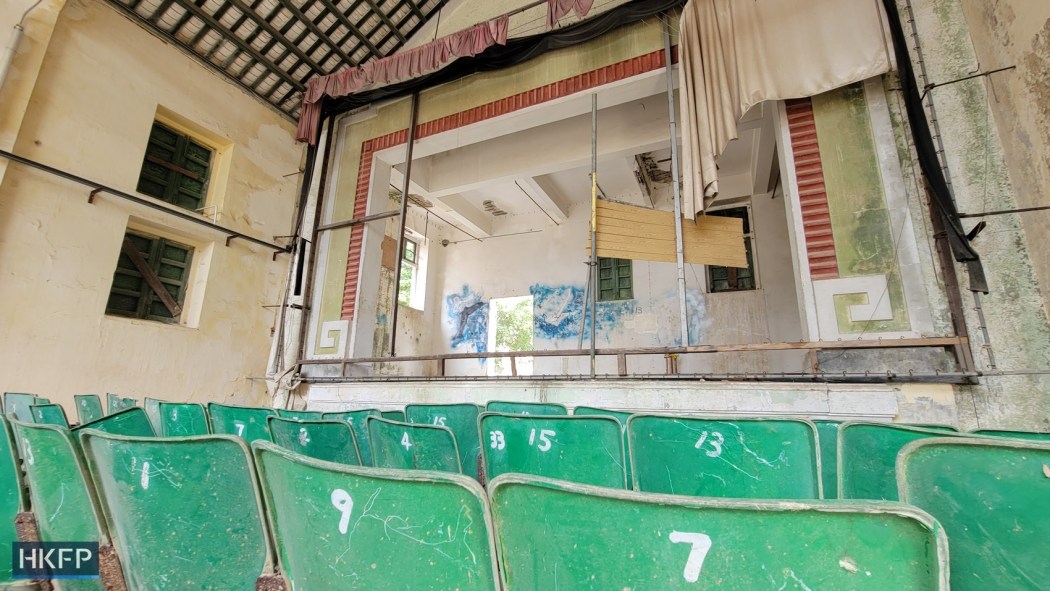
After the cinema closed down, the building was neglected for years; projectors and theatre seats became tarnished as nature gradually reclaimed the site. Kong, who ran a photo studio opposite the cinema in the 1990s, said residents were unclear about its future back then.
“Its roof collapsed! Roots grew into the walls and windows were broken,” Kong said. “I personally would like it to have been developed sooner.”
A decade of revitalisation plans
Things began to change after the government classified the cinema as a Grade III historic building in 2011.
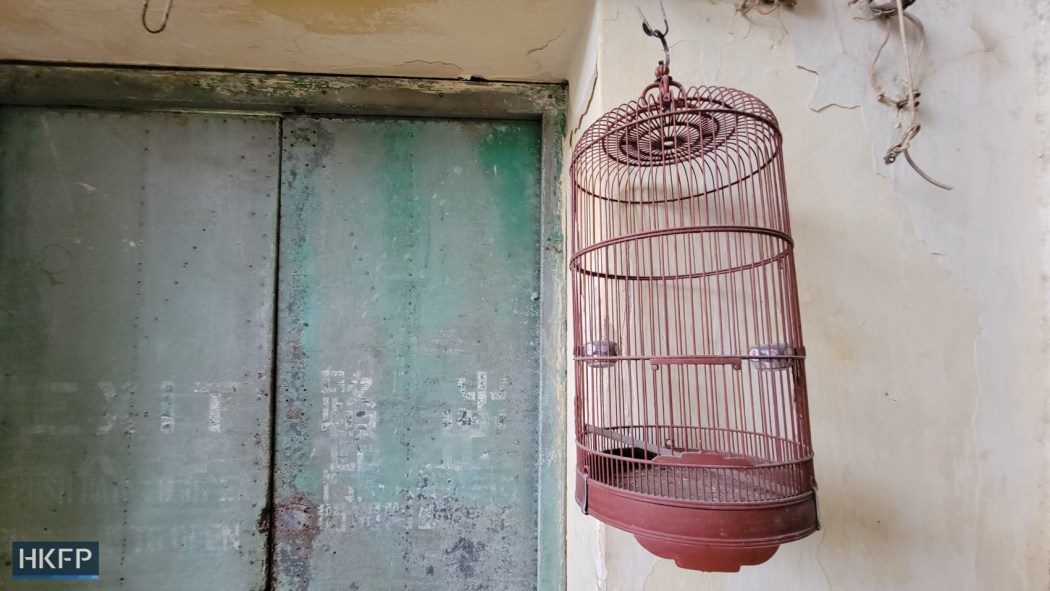
Under Hong Kong’s three-level grading system, Grade I is the highest, meaning the structure could potentially become a declared monument protected by the law, Fredo Cheung, chief director of the Conservancy Association Centre for Heritage, told HKFP.
“But being Grade III doesn’t mean it’s less valuable, and the Cheung Chau Cinema has great historical and social value,” he said.
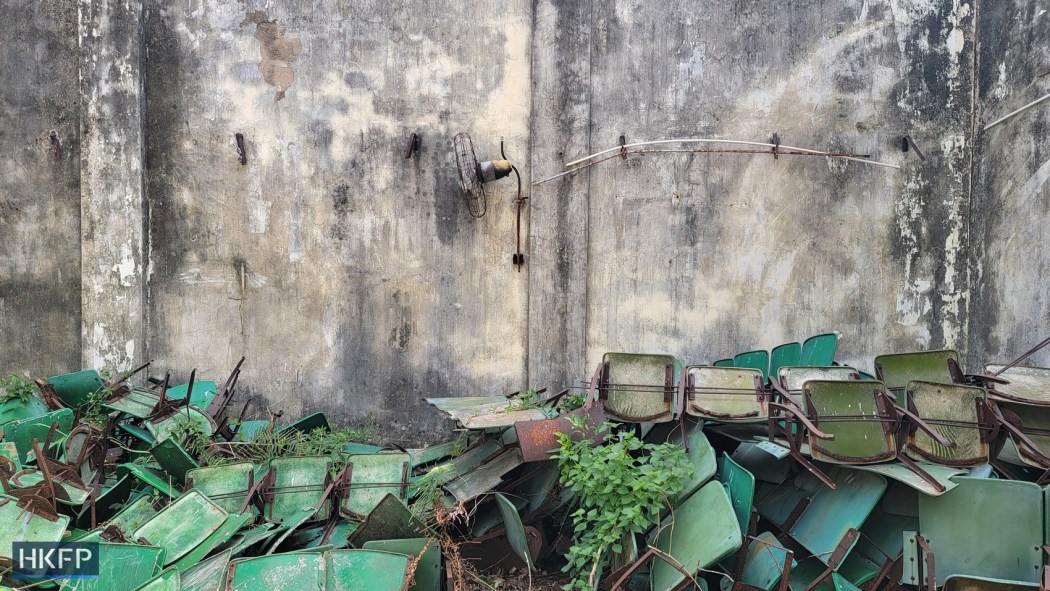
The difficulty in conserving Grade III historic buildings lies in the fact that many were private properties, and often the owners could not afford to conserve them, Fredo Cheung said. Demolition and redevelopment would almost certainly yield greater commercial value.
“From the perspective of a private property owner, having [the cinema] left idle for so long is like burning money,” Wendy Ng, president of the Hong Kong Institute of Architectural Conservationists (HKICON), told HKFP in Cantonese.
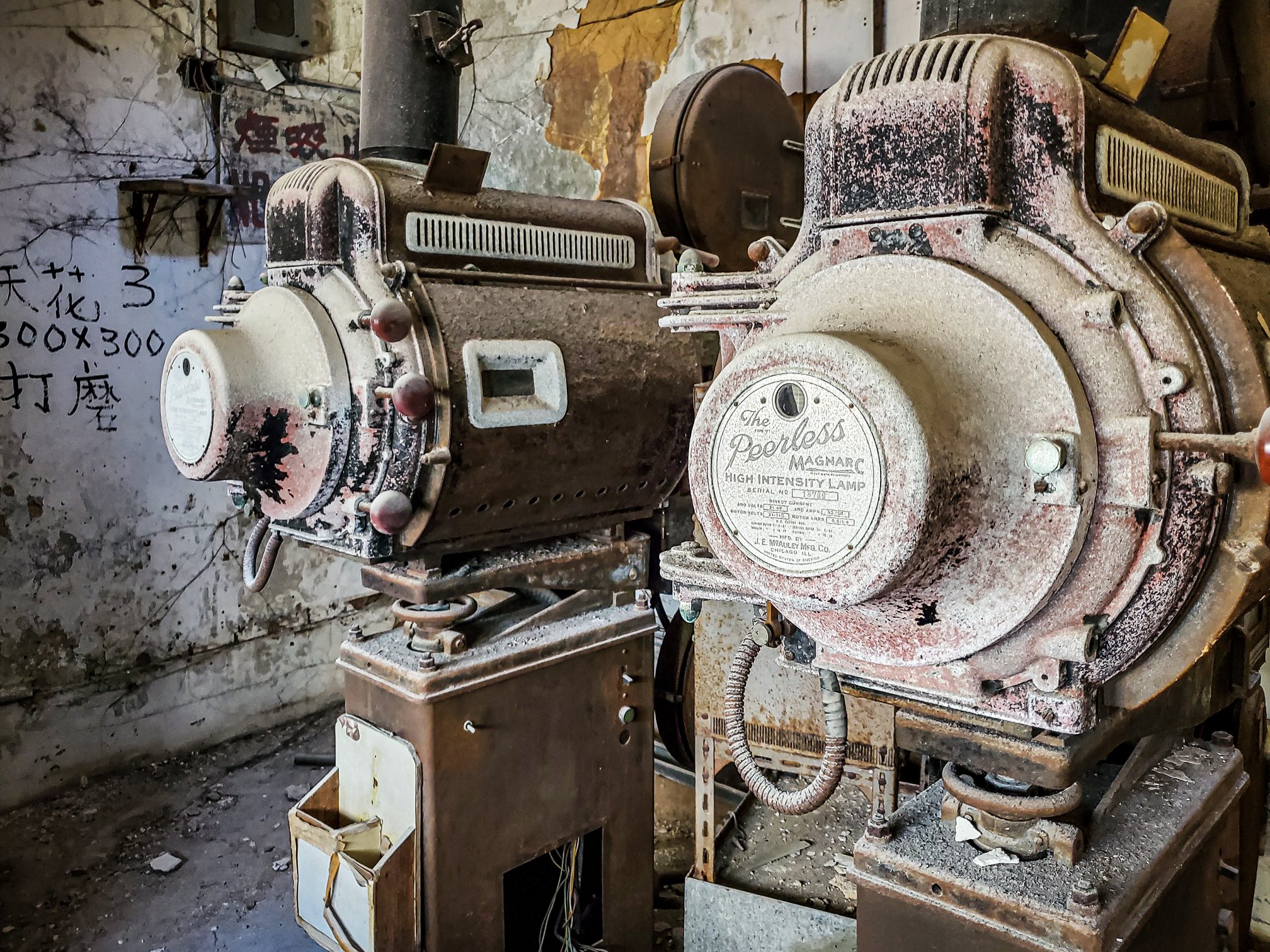
Local media reported in 2012 that an application to build an 11-condominium complex at the site was withdrawn. Plans to develop a shopping mall were also retracted.
In 2015, the now defunct pro-democracy tabloid Apple Daily reported that the former cinema may be transformed into a restaurant while minimising alterations to its structure.
According to Cheung Chau Culture Company, which is managing the revitalisation, historical artefacts dating back 5,000 years were unearthed during the restoration process. This discovery led to a three-year exploration, further delaying redevelopment.
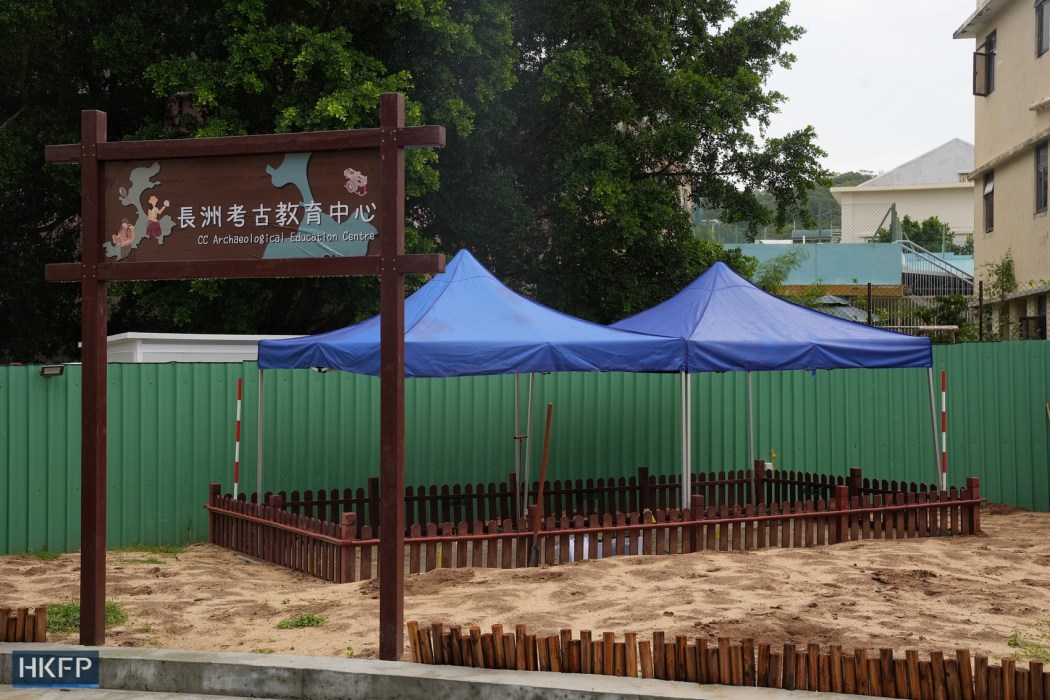
In August, when the company opened the first phase of the revitalisation plan – an information centre, a piazza, and a studio offering activities such as film screenings and concerts – CEO Eric Chiang told media that the whole project had cost an undisclosed nine-digit sum.
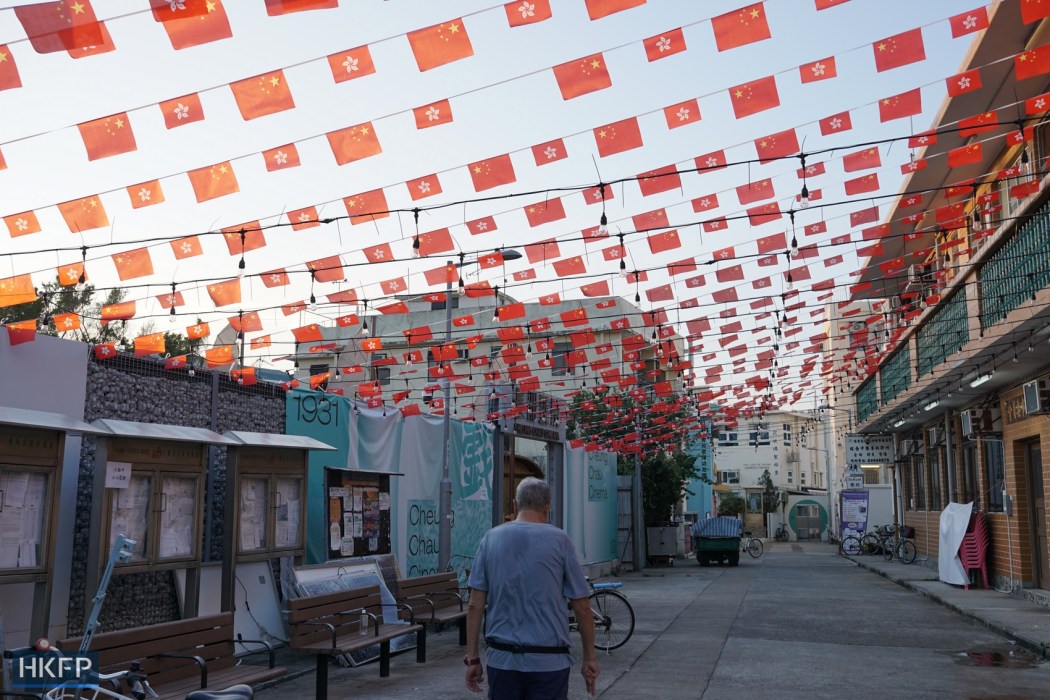
As for the actual cinema building, which remains inaccessible, its main block will be turned into a “Chinese-themed restaurant.” It is expected to launch in 2025, according to the company’s plan.
‘Manage change, not prevent change’
When asked how he felt about the revitalisation plan, Kong said he welcomed a new restaurant in the neighbourhood. “I could hang out with my friends, and it’s one more option for the tourists,” he said, his wife nodding beside him.
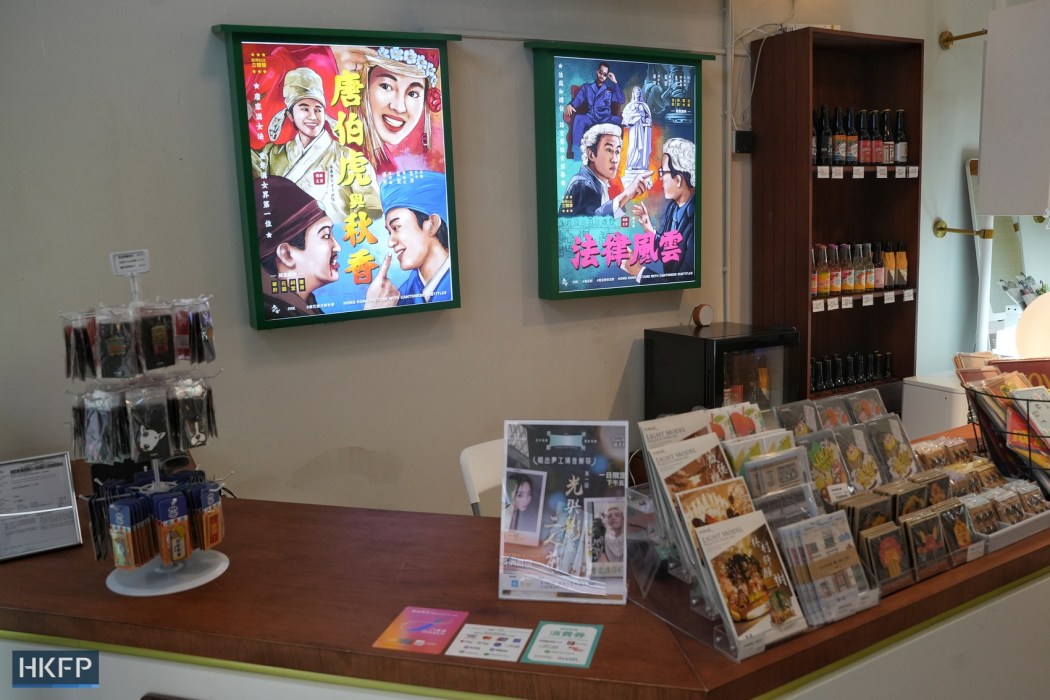
But asked whether residents would like the cinema to retain its original function, Kong – and other locals who spoke with HKFP – said they had no say in the project.
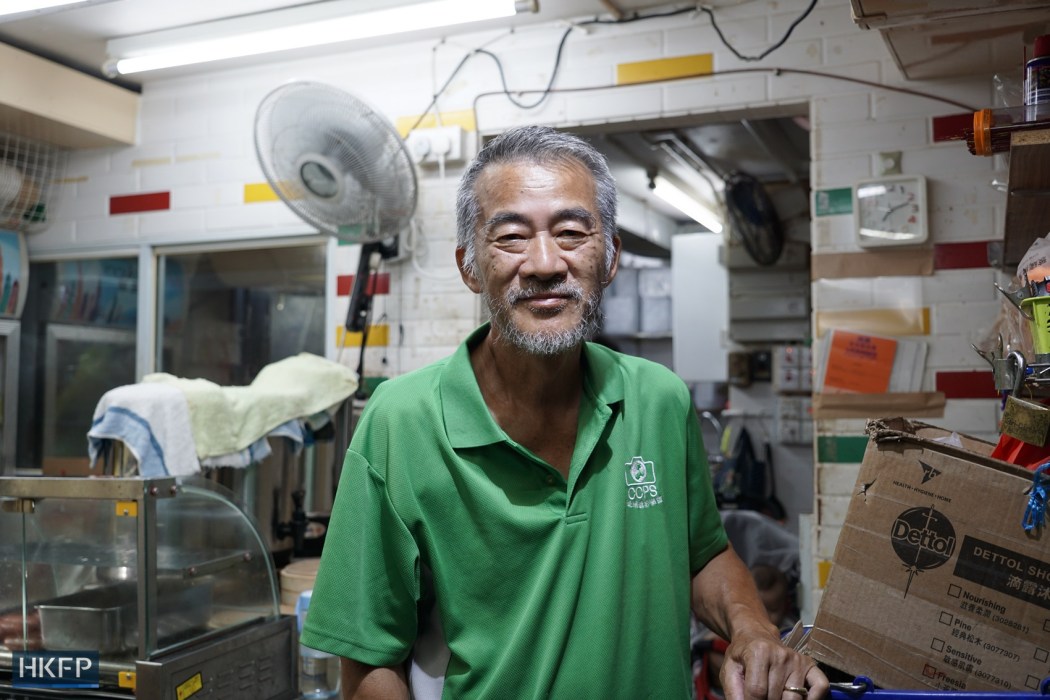
“For private heritage owners, the top priority is inevitably to sustain its properties,” Ng of HKICON said. “If it remained a cinema, would enough moviegoers visit? The fact that it closed in the first place implies the opposite. If changing its function could sustain the historic building, it is already meaningful from a conservationist point of view.”
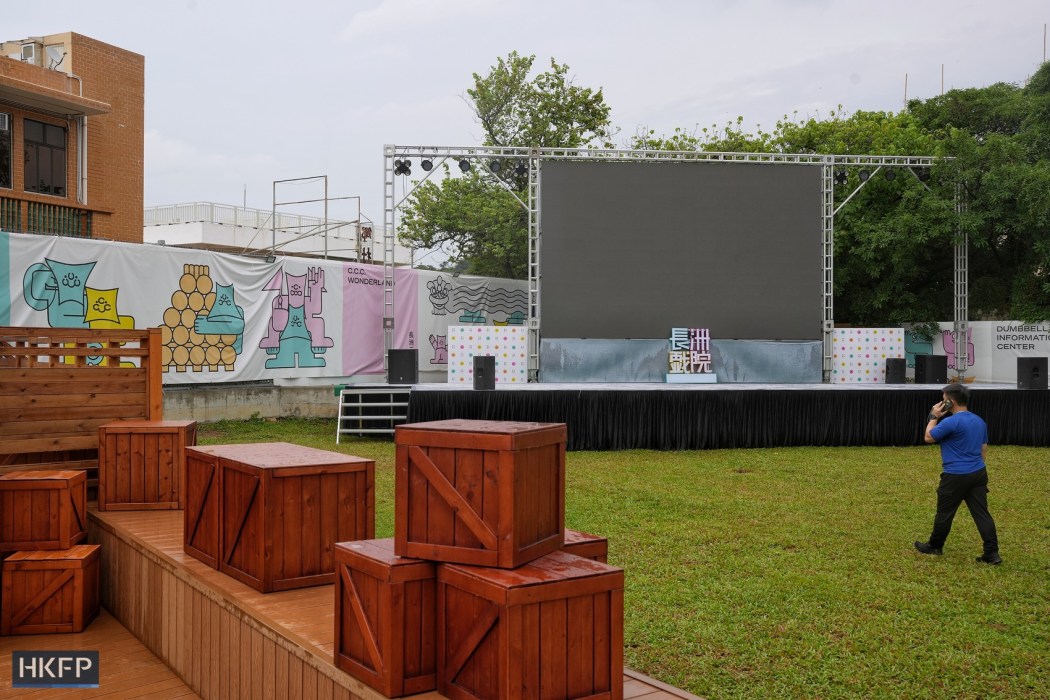
Ng added that the government could increase assistance to private heritage owners, including streamlining the application process for funding schemes.
“Heritage is not just about the building itself,” Fredo Cheung said, “and Hong Kong is still using a rudimentary approach to heritage conservation that sometimes overlooks the contextual values of a building in its community.”

He said he hoped that the “most important features” of the Cheung Chau Cinema would be conserved, but said there should be some leeway for it to adapt to new uses.
“We should manage change, not prevent change.”
Support HKFP | Policies & Ethics | Error/typo? | Contact Us | Newsletter | Transparency & Annual Report | Apps
Help safeguard press freedom & keep HKFP free for all readers by supporting our team

LATEST FROM HKFP
HKFP has an impartial stance, transparent funding, and balanced coverage guided by an Ethics Code and Corrections Policy.
Support press freedom & help us surpass 1,000 monthly Patrons: 100% independent, governed by an ethics code & not-for-profit.


